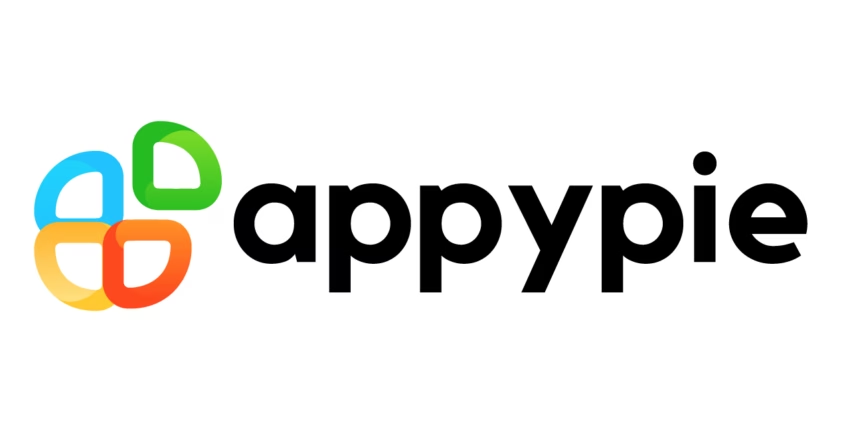
Appy Pie vs AppMakr — Which Mobile App Builder to Choose?
Are you looking for a mobile app builder, and you have come across Appy Pie and AppMakr? You might be wondering which one to use in your organization? Read the following Appy Pie vs AppMakr comparison.
In this article
- Mobile app builder features: Appy Pie vs AppMakr
- Pricing models offered by the two mobile app builders
- Devices on which the two mobile app builders are available
- Other mobile app builder differences
- Frequently asked questions on mobile app builders
Mobile app builder features: Appy Pie vs AppMakr
Appy Pie vs AppMakr feature comparison is as follows:
Features offered by Appy Pie
Appy Pie offers the following features:
- Organizations can access it over the cloud.
- Users can build apps without coding skills.
- Appy Pie offers drag-and-drop tools and templates to build apps.
- Organizations get app analytics and reports.
- Appy Pie offers monetization tools.
- Users can make modifications to the app.
- The updates to the app are immediate.
- Organizations can publish apps to the Apple App Store and Google Play store.
Features offered by AppMakr
AppMakr provides the following features:
- Users can create apps using this platform without any coding required. AppMakr provides the required tools for that.
- It provides app testing tools, which is one of its key benefits.
- Users can update their apps.
- The platform provides personalized HTML code.
- It offers key e-commerce features.
- AppMakr provides monetization tools.
- Users can incorporate features like push notifications.
- Organizations can use the reseller program offered by AppMakr to build multiple apps with one developer account.
Which platform offers greater features?
Both Appy Pie and AppMakr offer features that you would expect from leading low-code/no-code platforms. You can use either of them to build apps without programming skills.

Get a complimentary discovery call and a free ballpark estimate for your project
Trusted by 100x of startups and companies like
Limitations of apps created using mobile app builder platforms
Do you want to build apps with a set of standard features? Both Appy Pie and AppMakr offer enough features for that.
However, they won’t work if you have customized requirements. You need to build native mobile apps from scratch to offer all the features you want. There are various developer SDKs for both Android and iOS, and you need to use them.
Do you want to build native apps with features requiring advanced technologies like IoT and AI? Mobile app builders will not work well for you. You need a competent app development team. While hiring smart developers can be hard, companies like DevTeam.Space can help.
Pricing models offered by the two mobile app builders
Appy Pie offers both the monthly payment and annual subscription options. The annual subscription offers cost savings over the monthly billing option.
AppMakr offers a monthly payment option. Both Appy Pie and AppMakr provide the necessary flexibility you would expect from an app builder.
How do the pricing plans of Appy Pie compare with AppMakr?
Appy Pie pricing plans
Appy Pie offers the following pricing plans:
Basic
This plan costs $16 per month, and you don’t see ads. You can build Android and HTML5 apps. You can edit the app for unlimited time.
Gold
The gold plan costs you $36/month, and there are no ads. You can build HTML5 sites, Android apps, and iOS apps. You can edit the app for as long as you want.
Platinum
You pay $60 per month for this plan, and Appy Pie doesn’t show ads. You can build apps for Android and iOS devices. Appy Pie doesn’t impose any limits for editing the app.
Enterprise
The plan is split into a team plan ($2,000/month) and a company plan ($5,000/month) You get a dedicated account manager, data security manager, and a bunch of other benefits.
Hire expert developers for your next project
1,200 top developers
us since 2016
AppMakr pricing plans
AppMakr has the following pricing plans:
Free
This plan allows you to create an HTML5 mobile website. It includes a few more features like analytics, user forms, customized URLs, and QR codes.
App Basics
This plan costs €1 per month. You can build native mobile apps for Android, furthermore, you can build HTML5 mobile sites. The app will have AppMakr branding, and there are no limits on users and updates. You can real-time stats, analytics, and email support.
App Pro
The App Pro plan costs €14 per month. You can build native iOS and Android apps, furthermore, you can create HTML5 mobile sites. Users can submit apps to the app stores like Google Play Store and Apple App Store.
You can have unlimited users and edits. AppMakr offers personal branding, monetization tools, live stats, and analytics. You get premium support as a part of this plan.
Reseller
You pay €34 per month for the reseller plan, and you can build up to 10 apps. This plan allows you to build native apps for Android and iOS devices. You can submit apps to Google Play and Apple App Store.
You can also build web apps and HTML5 mobile sites. There are no restrictions on the number of users and edits. You can have personalized branding, access to the source code, and 24/7 premium support.
Note: None of the AppMakr plans show ads.
Appy Pie vs AppMakr comparison of pricing plans
Both Appy Pie and AppMakr are well-known low-code/no-code platforms. Their pricing plans don’t have notable differences, and you can choose either of them.
Note: Keep in mind that low-code/no-code platforms can’t support customized requirements. Do you want to offer an app that stands out from the crowd? Go for custom development. Pricing of the mobile app builder isn’t a factor in such scenarios. You need competent developers in such cases and hybrid software development companies like DevTeam.Space can help.
Hire expert developers for your next project
Devices on which the two mobile app builders are available
Appy Pie offers a web app, which makes it available to anyone that wants to create a mobile application. You can use it on Android and iOS devices too.
AppMakr is available on the web. You can use it on desktops like Windows and Mac. It’s available on Android and iOS.
Non-technical users that want to create apps would primarily want a low-code/no-code platform on the web. Both Appy Pie and AppMakr meet this condition.
Other mobile app builder differences
Business languages supported
Both Appy Pie and AppMakr support English as the business language. Organizations from all English-speaking countries can use these platforms, which provides a wide reach to both of them.
Customer support and technical support
Appy Pie provides support over phone, email, and live chat. The company provides training materials too. AppMakr provides support over phone, email, and tickets, furthermore, it provides training materials. Both app builder platforms provide the required technical and customer support.
Note: Organizations without the technical expertise for app development use low-code/no-code platforms. That makes these organizations highly dependent on app builder platforms. If you have a strategic app idea, then you should build your very own app. Engage hybrid software development companies like DevTeam.Space. This gives you complete control over the entire lifecycle of your own app.
Prominent clients of Appy Pie vs AppMakr
Appy Pie counts organizations like NHS, Nike, and FOXTEL among its clients. PBS NewsHour, WTOP, and Accenture CGSS are among the prominent clients of AppMakr.
The size of companies supported by the two app makers
Both AppMakr and Appy Pie support enterprises. They also support medium and small businesses. Regardless of the size of your business, you can use them to create mobile apps.
Should you use Appy Pie vs AppMakr vs custom development?
As we reviewed, both Appy Pie and AppMakr have their strengths. Both of them have a few limitations too. If you can’t hire software developers due to budget constraints, then you can use either of these platforms. Analyze your business and organizational requirements to choose the right platform.
On the other hand, do you need to offer a differentiated user experience to serve customers and get more sales? You might need to offer the following:
- Advanced features, some of which might use cutting-edge technologies like artificial intelligence;
- Powerful mobile apps with top-notch user experience;
- Industry-standard mobile app performance;
- Mechanisms to boost user engagement like push notifications;
- The ability to add features easily;
- Scalability;
- Security;
- Maintainability;
- Testability.
All the benefits of app builders will not quite help you to get there. You need competent mobile developers with the requisite programming skills and coding experience. Build a purposeful and energetic team that can do all the heavy lifting of a custom app development project. Contact DevTeam.Space to hire competent developers.
Frequently asked questions on mobile app builders
The complexity of your project depends on many factors and not just the development tool. Analyze whether you can serve customers well with apps built using a mobile app builder. Go for custom development if a mobile app creator isn’t enough. Customers come first and not technology.
Mobile app builders can’t meet stringent data security and privacy requirements. Meeting such requirements involves using modern information security techniques like encryption, multi-factor authentication (MFA), etc. Create mobile apps on your own to meet complex security requirements.
Large-scale enhancements of mobile apps require you to think through the software architectural decisions carefully. You need flexibility here. The confined approach of app builders will not work. Go for custom app development and engage a hybrid software development company.



